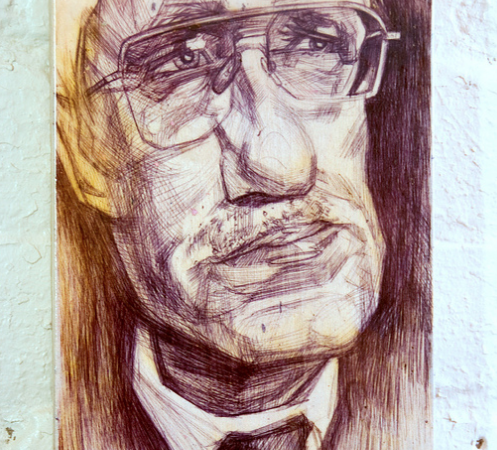It’s a public sphere Jürgen, but not as we know it

 It’s European Elections time. That period every five years when people partially wake up to the issue that democracy is supposed to work in the European Union, and the press starts to worry why it does not. The media itself may of course compound the problem.
It’s European Elections time. That period every five years when people partially wake up to the issue that democracy is supposed to work in the European Union, and the press starts to worry why it does not. The media itself may of course compound the problem.
In both the media discussion, and in a fair number of MA theses too, this often comes back to the concept of a public sphere, and specifically Habermas’s contextualisation of this.
The familiar answer runs as follows: no European public sphere exists, that means European democracy cannot work, and that is why so few people vote in European Parliament elections.
This grates with me, and this blog summarises – very roughly – some of the reasons why.
First, the European Parliament still does not conform to Schumpeter’s definition of a party system – that parties present programmes, voters make an informed choice between competing parties, the successful party puts its programme into practice and the governing party is judged on its successes at the next election. So the EU has a structural problem as a democracy, not simply a problem of the public sphere in which people can debate it. Of course there is a chicken and egg issue here, but a lack of the public sphere is not the sole problem.
Second, the sheer complexity of the European Union, and the historical context in which it has been constructed, means that comparisons with public spheres that (partially) work in nation states in Europe or elsewhere are always going to be wide of the mark. There has not ever been a modern attempt to build a transnational democracy, so comparison between the European Union and whatever we know will always be tenuous. That is before we even get to the question of language.
Third, bloggers are not the ones who will build the public sphere in the EU, although they will play some small, marginal role. The things I write about, and my fellow bloggers at BloggingPortal.eu, simply have too few readers to become that sphere – we are also too nerdy to ever be mainstream. Some sort of EU-wide television channel, newspaper or radio station is not going to be the answer either, for the same reasons.
But all of this is not to say we do not have some sort of European public sphere. But it is still developing, and developing to a template we struggle to understand. Habermas had no room for the massive change in the media landscape that the internet has brought in the last 20 years, with anyone being able to produce content, where the role of the mainstream media has weakened, where campaigns such Hugh’s Fish Fight or against ACTA forge a consciousness as much as the traditional media, or face to face meetings, can do. This is a sphere being built more or less without a role for political parties or trade unions, EU wide. This is somehow being built in a post-modern, financially increasingly unequal environment. But issues like ACTA or the fallout from the financial crisis have forged some EU-wide debate, some EU public debate, some messy sort of public sphere.
The error, I think, is to measure all of this against the yardstick of the sphere or a public debate at a national level. That parallel just does not hold.